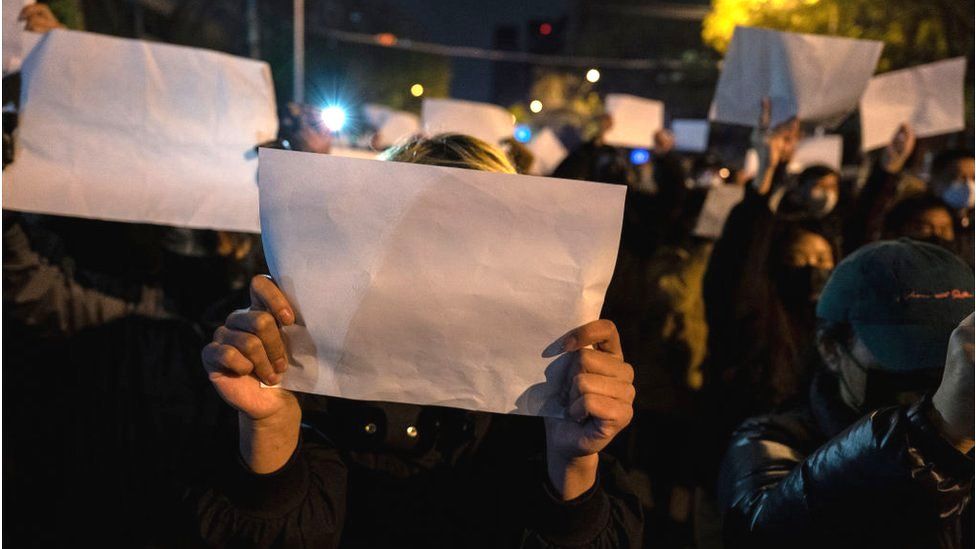-

-
-
Loading

Loading

In November 2022, a series of protests known as the White Paper movement erupted across China. The protests began as a vigil to mourn the victims of an apartment fire in Urumqi, but quickly turned into a rare show of dissent against Chinese authorities. Protesters called for China's leader, Xi Jinping, to step down and held up blank white sheets as a symbol of the things they wanted to say but couldn't. The protests spread to various cities in China and even among Chinese people living abroad. However, as the crackdown by authorities intensified, many protesters left the country out of fear for their safety. Some have kept a low profile to protect their families and friends back home. One protester, Huang Yicheng, was arrested by Shanghai police during the demonstrations but managed to escape. He lived in fear for several months, eventually fleeing to Germany on a student visa and seeking asylum. Yicheng believes that while there was a political awakening among young people in China, the price of activism is too high due to the authorities' power and control. Another protester, Zhang Junjie, faced severe consequences for his participation in the protests. He was asked to leave university and was diagnosed with schizophrenia after being admitted to a psychiatric hospital at the insistence of his family. Junjie eventually dropped out of university and fled to New Zealand, seeking both education and political asylum. He expresses disappointment in the lack of freedom in China and describes democracy as a distant dream. The White Paper protests have been likened to the student-led Tiananmen Square protests in 1989, which ended with a violent military crackdown. Chinese authorities have censored information about the White Paper movement, scrubbing records online and discouraging any commemoration of the protests within the country. Although some protesters have found refuge abroad, they still hold concerns about the safety of their loved ones in China and the potential repercussions of their activism. The White Paper movement has sparked soul-searching and a rethinking of life choices among young, educated Chinese. The sluggish economy and Beijing's heavy-handed approach to dissent have contributed to a larger number of people leaving China and a shift away from the nationalism that was cultivated in the past decade. Despite the challenges and risks involved, the White Paper protests demonstrate that the human spirit continues to exist in China. The protests serve as a reminder that even a small spark can ignite change and that the resilience of the Chinese people stands strong.